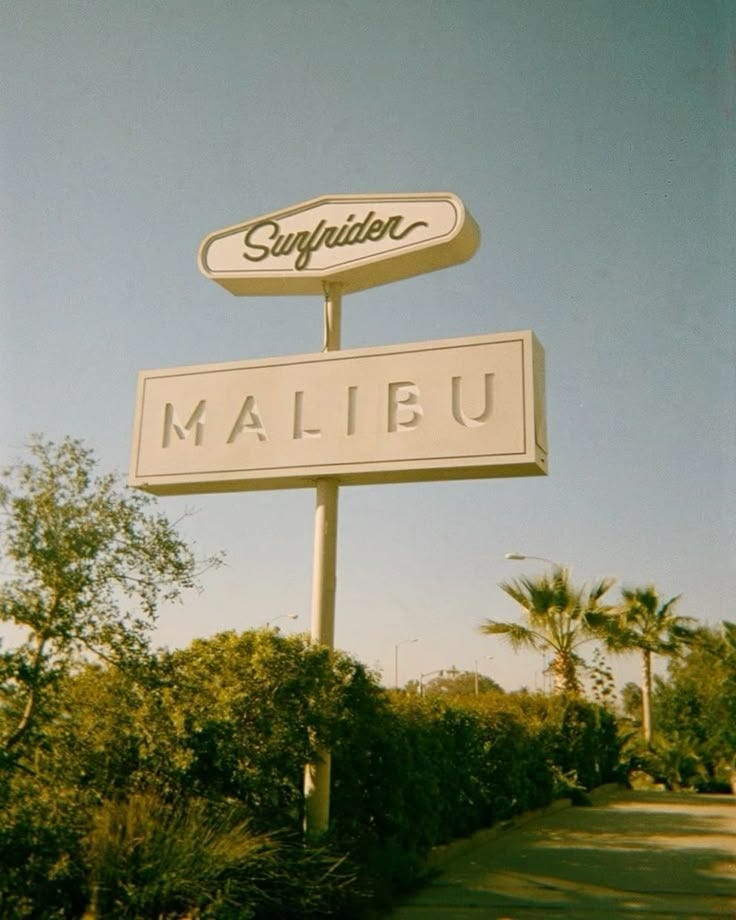Last Sunday I did three things I haven’t really done since having my son: I put on jeans, did my makeup, and drove out to Malibu.
I was invited to speak on a panel about addiction at Carrara, a new luxury treatment center with sweeping ocean views. Tucked away on a tree-lined street, the facility is located in a pristine beach house and focused on holistic wellness (think: reiki, massage, breath work) with an emphasis on drug & alcohol treatment and mental health.
A slew of influencers had been invited to the event; some were sober or sober curious, while others worked in the broader wellness/beauty/lifestyle space. A lavish spread sat in the middle of the room and remained largely untouched: charcuterie, Spanish Marcona almonds, and honeycomb nestled in a bed of blood oranges, the waxy cells congealing as the hours passed.
But despite the luxurious trappings, the panel was stark and rooted in urgency. An actress kicked us off with a speech about losing her teenage brother to a fentanyl overdose. Next, we heard from a former reality television star who had recently gotten sober after years of drug abuse, as well as a marketing executive who restarted his life after getting addicted to pills. I shared about my own experiences as a blackout drinker and how getting sober changed my life. The owner of the treatment center, Richard Taite (who founded Cliffside Malibu, a go-to treatment center for many celebrities, in 2005) implored the guests in attendance to take fentanyl and addiction seriously. “We are out of time,” he repeated gravely, his voice gruff with emotion as he talked about losing close friends to accidental overdoses.
The goal of the event was to raise awareness about the fentanyl epidemic and share different perspectives on addiction and recovery. But as I looked out at guests in attendance — many of whom were in their early twenties — I detected a mixture of empathy and mild confusion on their faces. I could tell they were unclear on their next steps; what did being “out of time” really mean for them? It reminded me of sitting through D.A.R.E and MADD (Moms Against School Driving) school assemblies in the ‘90s. “Just say no” was the common refrain, akin to the abstinence-only approach favored in many health classes, but it left little room for nuance or questions.
We are taught not to drive drunk, take unmarked pills, or do drugs. But it’s also considered a natural rite of passage to experiment in college and beyond. Despite the “just say no” messaging I absorbed as a teenager, I still got drunk with my friends. Have fun, but be careful. Drink, but do it responsibly. It can be confusing and, when you’re young, the things that are considered taboo can often feel exciting. Maybe being “out of time” means calling it quits on experimenting, being curious, and thinking we’re invincible. But is that an unrealistic ask for young adults?
I wondered how many guests would leave the event truly changed. Until I hit my own rock bottom with alcohol, I was unable to truly absorb anyone else’s cautionary tales. I was one of the lucky ones; I got sober before it was too late. And yet, the reality of fentanyl is terrifying — even just ingesting a single pill laced with the drug can be deadly — which is why it's so crucial to spread awareness about it outside recovery circles.
I left the event thinking about my new role as a mother and how I’ll talk to my son about drugs one day. I’m still not sure how to marry action with awareness; how to share without sounding preachy, or to foster curiosity in kids while keeping them safe. I drove back from the event in silence, windows down, grateful for the time. The ocean air filled the car all the way home.
Xx
Sarah





I’ve started thinking about this conversation with my son one day. He’s currently 4 so I have a minute but it really feels like only a minute. I’m sober and navigating how to talk to him about this feels precarious. I don’t want to lecture or preach. But I also don’t wanna be like “that’s your journey, bro.” I’m leaning toward I just have to be honest. That’s all I can do.